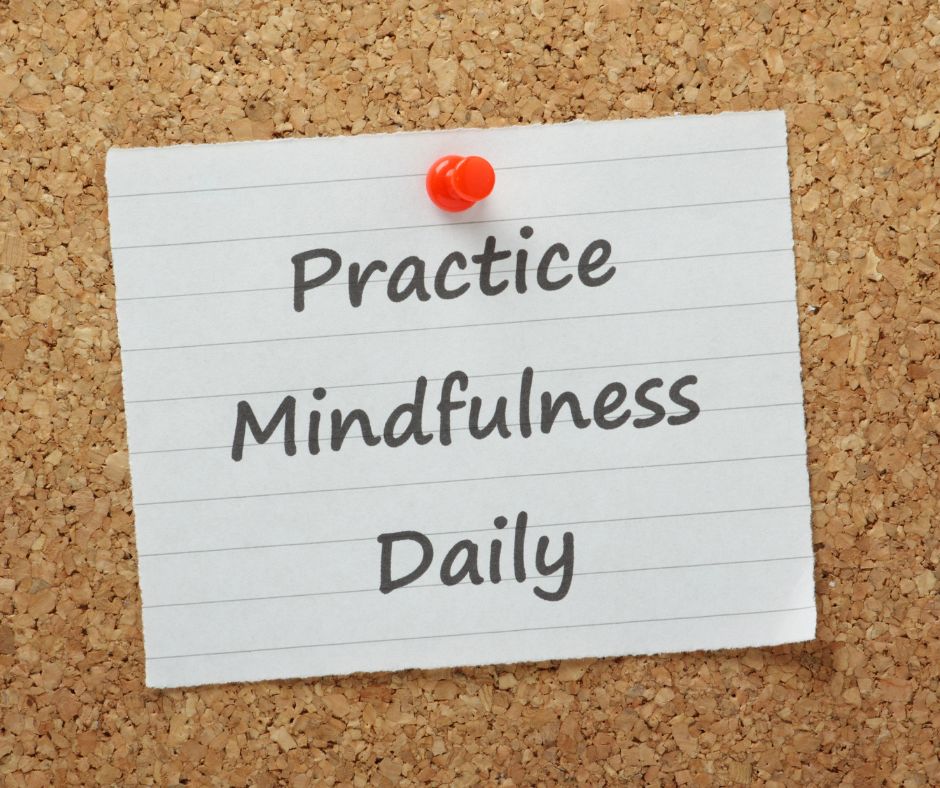Submitted by BOB PREHN, PHD, and SONYA SUMMERLIN, LFMT

This Mental Health Awareness Month, experts from St. Dominic’s Behavioral Health Services offer some practical steps to help you keep your mental wellbeing top of mind.
Our modern lives are full of activities, obligations and deadlines. It’s easy to feel anxious or even experience some depression. When these feelings become overwhelming, there are mental health resources and professionals who can help. But for most of us, “mindfulness” is the key to a better life. What is mindfulness?
Mindfulness is the basic human ability to be fully present, aware of where we are and what we’re doing, and not overly reactive or overwhelmed by what’s going on around us. While mindfulness is innate, it can be cultivated through proven techniques. Here are some examples:
• Seated, walking, standing and moving meditation.
• Short pauses inserted into everyday life.
• Merging meditation with other activities, such as a daily devotion/prayer practice, yoga or sports.
• Guided visualization, including muscle relaxation.
6 facts about mindfulness:
• Mindfulness is not obscure or exotic. It’s familiar to us because it’s what we already do, how we already are. But practicing mindfulness improves the results.
• Mindfulness is not a special added thing we do, but we can foster these innate qualities with simple practices that have scientifically proven results.
• Anyone can do it. Mindfulness cultivates universal human qualities and does not require anyone to change their beliefs. Everyone can benefit and it’s easy to learn.
• It’s a way of living. Mindfulness brings awareness and caring into everything we do and cuts down needless stress.
• It is evidence-based. Both science and experience demonstrate that when we’re mindful, we reduce stress, enhance performance and gain insight and awareness.
• It sparks innovation. As we deal with our world’s increasing complexity and uncertainty, mindfulness can lead us to effective, resilient, low-cost responses to seemingly difficult problems.
Simple ways to start:
• Wake up 15 minutes early. Spend this time sitting quietly, eyes closed — reflecting on the day ahead, your feelings and expectations. You can even use a daily scripture or devotion topic to guide this time.
• Write down: “Today I will … ” and list what you plan to do. Review yesterday’s list.
• Take a walk. Research shows that a 45-minute walk reduces stress and anxiety. Best results were found for afternoon walks (as opposed to mornings) in quiet surroundings like parks or walking trails.
Finally, remember that learning mindfulness is like learning to play the piano: Practice, practice, practice. Get started, practice daily, and the results will surprise you!

Robert “Bob” Prehn is the executive director of Behavioral Health Services at St. Dominic Hospital. He has a PhD in psychology and healthcare administration and more than 35 years of experience leading behavioral health programs.

Sonya Summerlin serves as an outreach/community liaison at St. Dominic’s Behavioral Health Services. She has a master’s degree in clinical psychology and is a licensed marriage and family therapist (LMFT). She has more than 35 years of experience in the mental health field.

